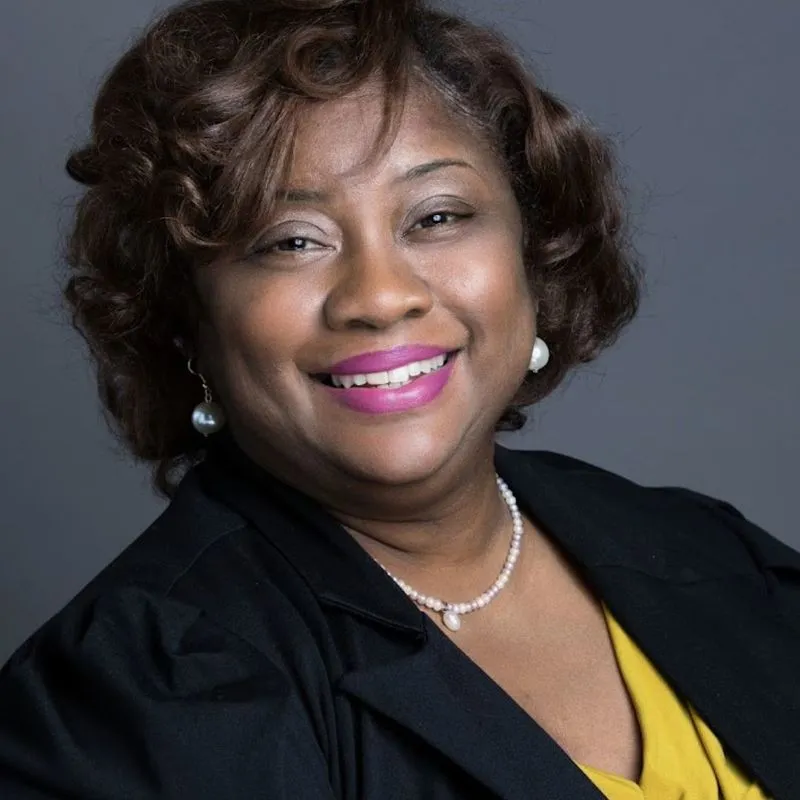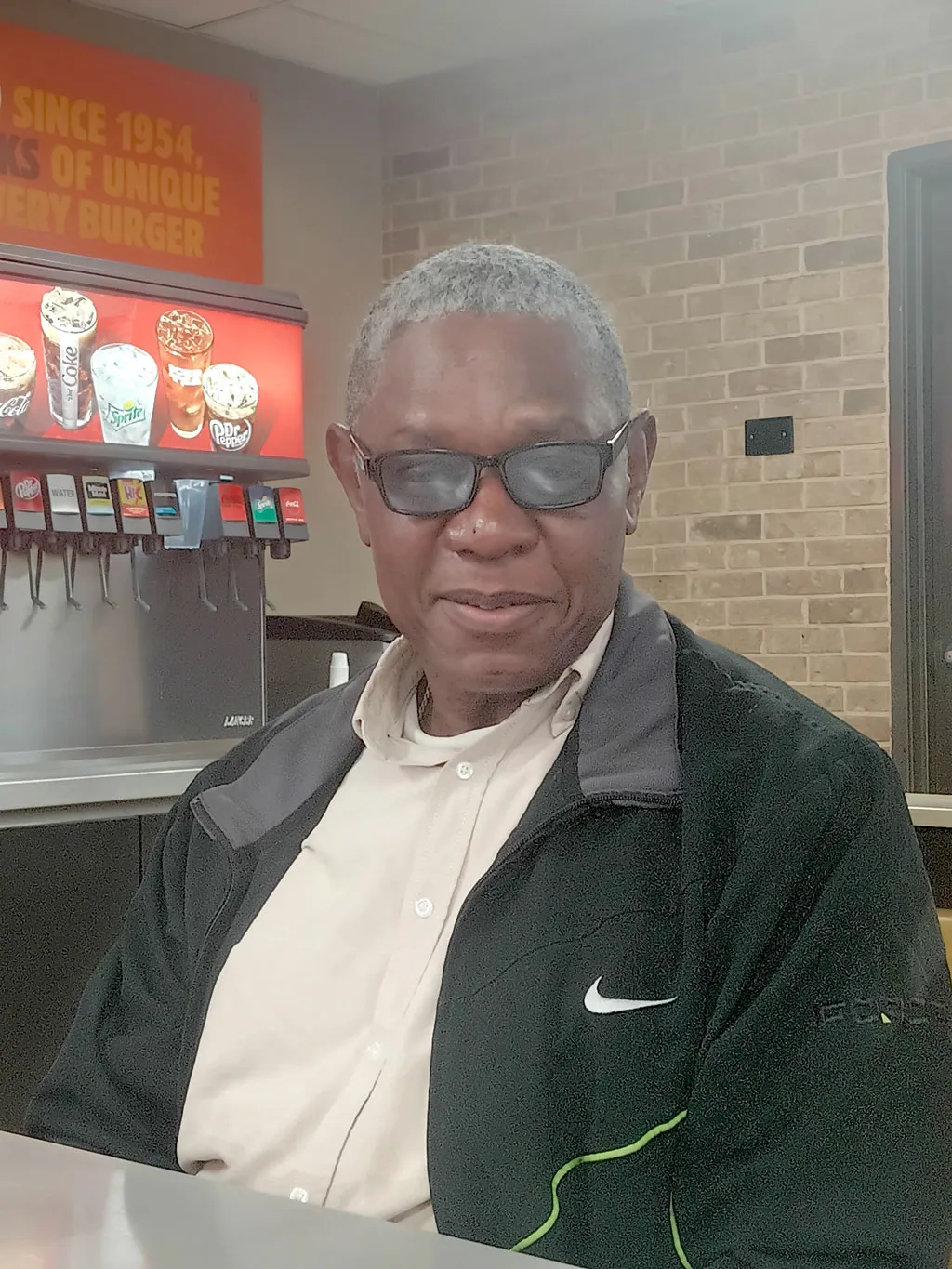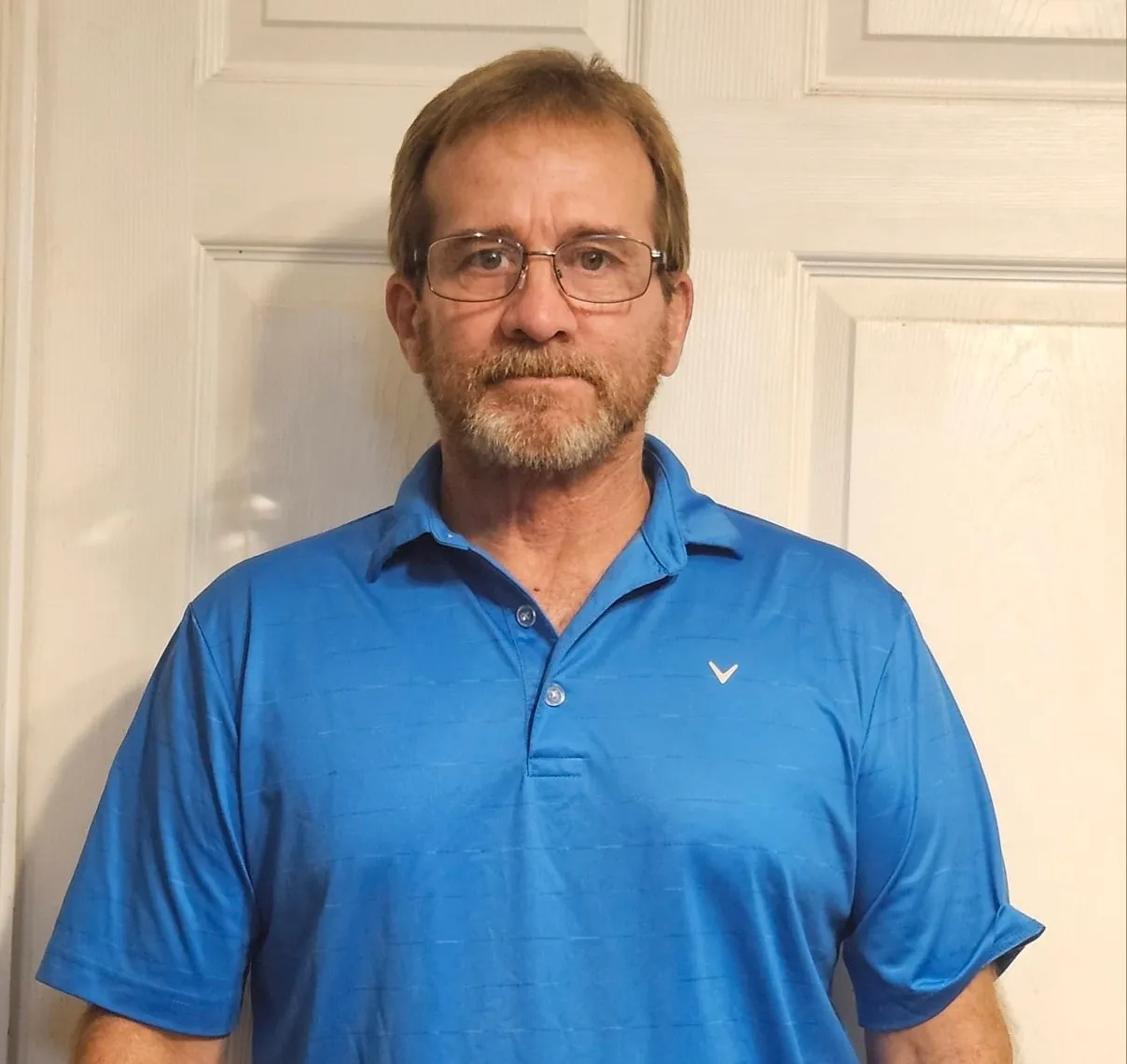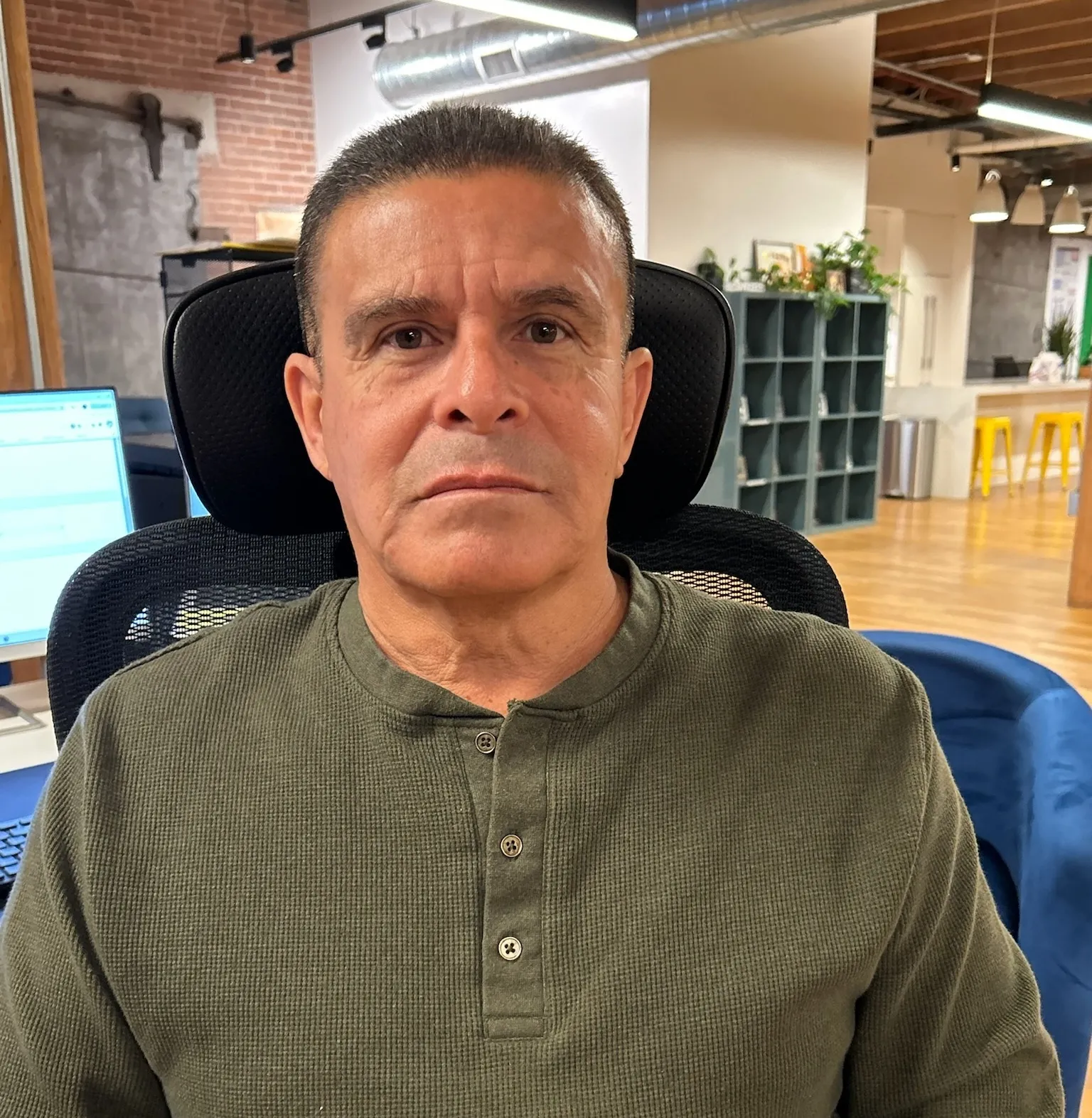Many voices often go unheard, and the journey of individuals impacted by the justice system can be both challenging and transformative. The JustLeadership USA (JLUSA) program empowers those with lived experiences to reclaim their narratives and advocate for meaningful change. In this blog, we dive into the inspiring story of Tamara, a training manager at CEO, who, after being wrongfully convicted, found a renewed sense of purpose through the JLUSA program. As Tamara describes, "JustLeadership USA helped me find my voice by showing me the power of my story and equipping me with the tools to use it as a catalyst for change."
1. What is your role at CEO?
I work as a training manager with the strategy and innovation team. Primarily my day-to-day functions are around supporting the Emerging Leaders Program (ELP), which is a 12-week paid internship program to help justice-impacted people develop their leadership skills and put them on pathways for potential careers. I started here in February of 2023.
2. How did you hear about JLUSA and how were you selected to be a part of this cohort? What initially motivated you to join?
It’s interesting because I had never heard of JustLeadership USA before my manager mentioned it to me. I was aware that another colleague was involved, but I didn’t know much about it at the time.
My manager at the time believed it would be beneficial for me to network with individuals engaged in advocacy work. When I joined the organization, one of my main goals was to find my voice after being wrongfully convicted and sent to prison. I wanted to discover meaning and purpose in my experiences. I expressed this to her during our goal-setting sessions, and she thought JustLeadership USA would be a great opportunity for me.
At first, I hesitated to apply for the program because I believed it was primarily designed for individuals just beginning their leadership journeys. With over 20 years of leadership experience, I worried that the program might not be suitable for someone at my stage in their career. However, I’m so grateful that I took the leap. The selection process was competitive, with around 400 applicants and, ultimately, just 31 of us in the graduating cohort. I discovered that the program welcomes participants from all levels of experience, reinforcing the value of ongoing leadership development, no matter where you are in your career.
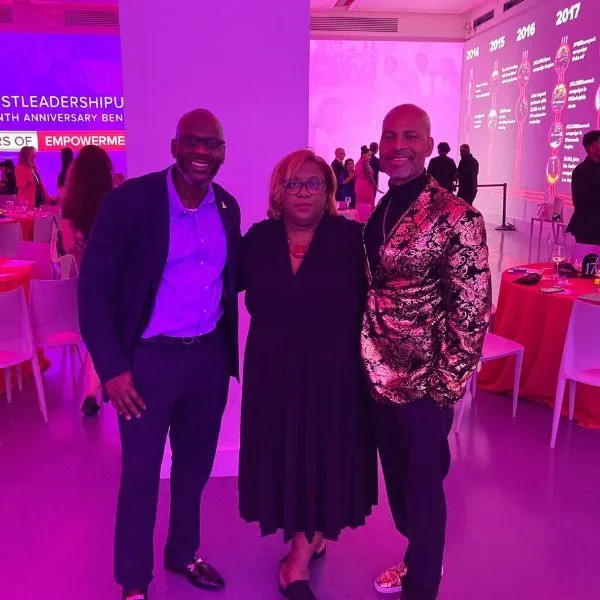
3. What were some of the main skills or insights you gained from the JLUSA program that you feel are most valuable?
The program not only helped me refine my leadership and advocacy skills, but it also guided me in finding my voice, which has been incredibly empowering. Being able to channel that newly founded voice into active advocacy for causes that are important to me was a main goal for me. I’m grateful for the connections I made through the program; it opened my eyes to the fact that my situation wasn’t an isolated incident. There are many people who, like me, have been unjustly impacted by the legal system and have had to rebuild their lives from scratch.
4. How was it to be in a space with justice-impacted changemakers from all different backgrounds?
It was an incredible honor to be part of such a diverse cohort like cohort 10, especially alongside individuals who are making significant strides on national platforms. For instance, Kyle Giddings and countless others were in my cohort. Being with these incredible change-makers really broadened my understanding of what is possible. It’s amazing to see how a single idea, voice, or commitment can drive real change. Each person in our cohort shared a common goal: to support and uplift those affected by the justice system.
I believe it’s crucial for those who have lived these experiences to unite their voices. Together, we can draw attention to issues that are often overlooked. This cohort was powerful because not only did we highlight problems, but we also brought solutions to the table. We shared strategies that can scale across the country. If we can enable people to vote inside jails in Colorado, why can’t Georgia or New York be next?
5. What challenges did you face during the cohort, and how did you overcome them?
One of the biggest challenges for me was the significant amount of pre-work required during the nearly 11-month experience. There was a lot of reading, which felt very much like grad school. Balancing that workload with my full-time responsibilities at CEO—often exceeding 70 hours every two weeks—was extremely difficult. Additionally, learning to tell my story in just two minutes posed a major hurdle. The cohort taught us to use the VPSA model, focusing on Value Proposition, Problem, Solution, and Action, which forced me to condense my narrative while still conveying its emotional impact.
Initially, I struggled to keep my story concise, taking months to trim it down from four minutes as I navigated the complexities of sharing personal experiences related to pain and trauma. To overcome these challenges, I had to commit to practicing my storytelling continuously, focusing on the high-level elements while ensuring there was a clear call to action. This journey transformed my approach to sharing my story, and I’m proud of the progress I made.
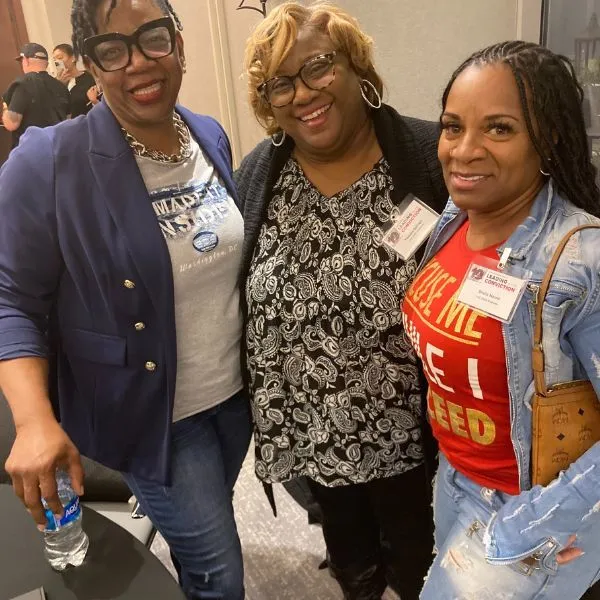
6. Are there specific projects or causes you became more passionate about through JLUSA?
Absolutely! I became significantly more passionate about the issue of the 48,000 collateral consequences of incarceration, which I had never even heard of before. Through my involvement with JLUSA, I’ve gained a deeper understanding of these consequences and have been advocating for the removal of post-incarceration barriers that are unfounded.
In fact, I was particularly active this election season since I still don’t have my voting rights restored after being home for 5 years. Before my life changed, I had voted in every election since I turned 18—except for one when I was hospitalized having a baby and another when I was out of the country and forgot to request my absentee ballot in advance. Voting is very personal for me; it was a gift my father gave to each of his children by driving us to register when we turned 18.
Losing that right, especially under the circumstances that I did, has been difficult, and I suffered in silence until this year. Now, I've been out there advocating, cheering people on, and sending reminders to encourage others to vote—activities I likely wouldn’t have engaged in during the last four years. I’ve come to recognize how crucial the restoration of voting rights is for individuals like me.
7. How has the cohort prepared you to impact your community or further your professional goals?
I feel like I have a voice that I can now use in areas of advocacy that are really important to me. And I think for me it's about figuring out what that looks like, but I do believe that I was able to find this voice as part of the fulfillment of my purpose in life, to advocate for change and to use my voice in a way that impacts a larger sort of concern.
8. How did your experience in JLUSA shape or change your approach to your work at CEO?
My experience at JLUSA has significantly increased my interest in advocacy work. Initially, I was aware of the advocacy fellows and their contributions, but I didn’t fully grasp their impact. Connecting with people from different states made me pay attention to critical national issues, like Prop Six in California and voting rights restoration in Colorado, which I wouldn’t have noticed before. Now, I actively seek information and stay engaged, especially during elections, following not just local races but also propositions that affect broader policies.
9. What advice would you give to someone considering joining JLUSA?
The application process for JLUSA can be overwhelming, particularly the requirement to provide 20 names for 360-degree feedback on your leadership skills. Many might hesitate if they don’t have that network. However, if you meet the criteria, don’t shy away. Completing the rigorous application can be transformative. It opens doors to networks and helps clarify how you can advocate for real change. I encourage anyone with the desire to make an impact to consider this opportunity. It requires a significant time investment, but the return—in terms of personal growth and connections with like-minded individuals—will be worthwhile.
10. Now that you are a graduate, what's next for you in terms of applying what you have learned?
As a graduate, I plan to speak out about the misuse of RICO charges, sharing my experience of being incarcerated due to a charge linked to actions I did not engage in. My story centers on the concept of fairness: what do you do when asked to pay for someone else's mistake? By addressing the issues surrounding RICO laws and their broad application, I aim to advocate for change and raise awareness about how these laws can unjustly impact individuals. My voice will shine a light on the collateral consequences of these misapplications, highlighting the need for reform.
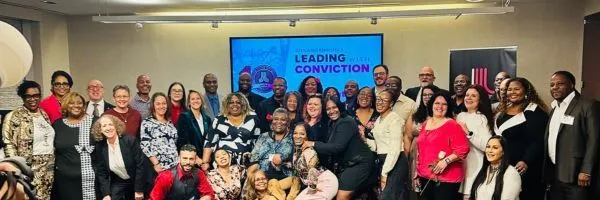
Tamara's journey through JustLeadership USA (JLUSA) equipped her with essential leadership skills and connected her with a community of resilience. Her story highlights the power of sharing personal experiences as a tool for driving social change. With newfound confidence, Tamara is empowered to speak up, advocate, and inspire others. As she emphasizes, “We MUST stay connected,” reminding us of the strength found in the community as she continues her impactful journey toward meaningful change.
